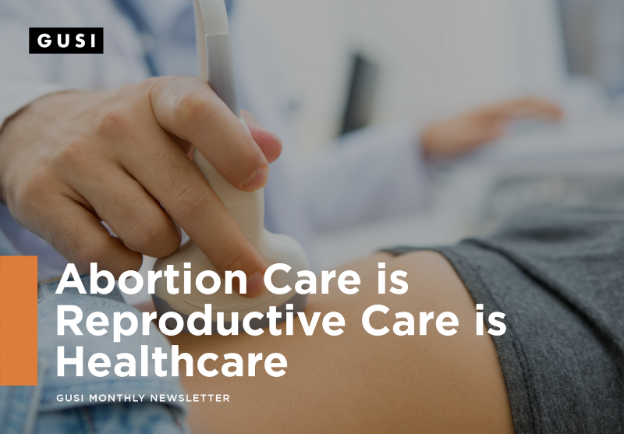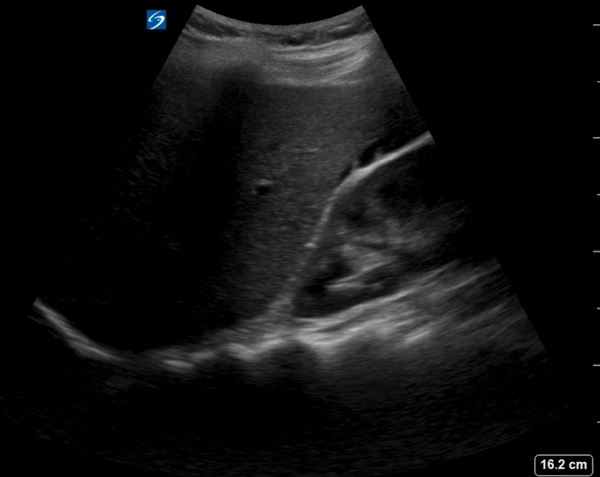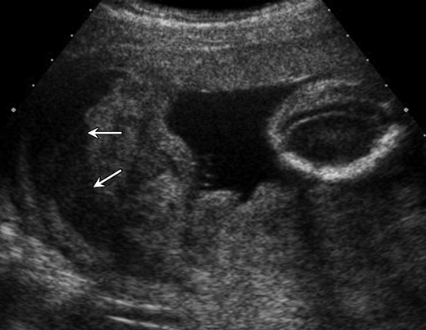E-newsletters
June 2022: GUSI – Abortion Care

The United States Supreme Court’s unprecedented decision on the Dobbs v. Jackson Women’s Health Organization case overturned Roe v. Wade, henceforth removing constitutional protection of abortion. The fallout of this is still being understood, but it has already led to an outright ban for abortion care in many US states. It’s morphing our healthcare system with great swaths of essentially blacked-out areas where there is no reproductive care, no clinic, and no clinician able to provide life-saving reproductive treatments.
The consequence will be detrimental to all Americans who hope to become pregnant, require healthcare during their pregnancies, seek to end pregnancies, or need access to the same medications but for other indications (e.g., cancer management). Many will have to travel hundreds of miles to access basic healthcare. We already know that many will not do so, nor will they be able to do so. Clinicians will be forced to change how they practice medicine — causing an undue imposition of politics on scientific medical expertise.
At GUSI, we strongly believe that education and lifelong learning is fundamental for healthcare workers. And we encourage everyone, regardless of the type of clinician you are or specialty you practice, to learn these life saving POCUS skills.
|
|
|
We dedicate this special edition newsletter to healthcare workers and clinicians who are empowered to provide the best healthcare to all of their patients, especially those patients who are our most vulnerable and at-risk.

CASE STUDY #1
A 45 year old woman, G5P0 presents to your urgent care clinic. She had previously been going to the local fertility clinic to receive in vitro fertilization (IVF) treatments and recently had a high number of embryos transferred into her uterus. Now, she reports experiencing 4 hours of severe pelvic pain. In your clinic, you note she is pale and sweaty. Her heart rate is high at 115, her blood pressure is low at 80/40, but her oxygen saturation is normal. You immediately develop concern for the hemodynamic status of your patient and perform a FAST POCUS exam.

Free fluid in the Right Upper Quadrant
You are able to diagnose a ruptured ectopic pregnancy based upon free fluid found on the FAST exam, no obvious intrauterine pregnancy, and an elevated beta-hcg level. Based upon this, there is concern your patient has lost a significant amount of blood, and is now going into hemorrhagic shock. You will need to rapidly transfer her to a facility with OB/GYN capability.
After you call 911 for transportation, you counsel your patient on what she can expect at the next facility. You also take a moment to grieve with her as she expresses sorrow over another hurdle in her hopes of becoming pregnant with a viable fetus and to carry it to term.
Read more here:
- Facts about Ectopic Pregnancies from American College of Obstetricians and Gynecologists (ACOG) – https://www.acog.org/advocacy/facts-are-important/understanding-ectopic-pregnancy
- Impact of point-of-care ultrasound on treatment time for ectopic pregnancy – https://pubmed.ncbi.nlm.nih.gov/34146921/#:~:text=Background%3A%20Point%2Dof%2Dcare,recognizing%20hemorrhage%20from%20ectopic%20pregnancy.
CASE STUDY #2
A 35 year old woman, G2P1 who is 38 weeks pregnant is brought to the Emergency Department after having two generalized tonic clonic seizures. Based upon her vitals, lab work, and physical exam which shows vaginal bleeding and diffuse mucosal bleeding, you are concerned that she has developed preeclampsia, HELLP syndrome, and likely DIC. You intubate her while stat paging the OB/GYN doctors. In the meantime, you perform a POCUS.

Placental Rupture
You note on the POCUS exam that there is placental rupture. You suspect intrauterine fetal demise. Given the overall clinical findings, you know that your patient is at high risk for death. Additionally, your OB/GYN colleagues come to the bedside and share with you that it will be challenging to resuscitate this patient after the Roe vs Wade ruling. The political ruling has impacted and hindered their ability to practice evidence-based medicine, especially when trying to save the mother.
Read more here:
- CDC Maternal Mortality Rates in 2020: https://www.cdc.gov/nchs/data/hestat/maternal-mortality/2020/maternal-mortality-rates-2020.htm#:~:text=In%202020%2C%20861%20women%20were,20.1%20in%202019%20(Table).
- DIC in Pregnancy: https://www.ncbi.nlm.nih.gov/pmc/articles/PMC8747805/
Plowman, R. S., Javidan-Nejad, C., Raptis, C. A., Katz, D. S., Mellnick, V. M., Bhalla, S., Cornejo, P., & Menias, C. O. (2017). Imaging of Pregnancy-related Vascular Complications. Radiographics : a review publication of the Radiological Society of North America, Inc, 37(4), 1270–1289. https://doi.org/10.1148/rg.2017160128
What can you do?
1. Donate to an abortion fund
2. Write an Op-Ed
3. Seek ways to support efforts already underway in your community
Seek link for more details on the above strategies:
https://docs.google.com/document/d/e/2PACX-1vQr3A9Xm603rBcrz91vm3JcYX5vIs1vNks6wUgkgE1D69qZfHchaYCvDDebibJDeT3CElNvhl5jG463/pub?mc_cid=cf69a91160&mc_eid=95b5e03875&urp=gmail_link
Best wishes,
Kevin, Mena, & the GUSI Education Team
Transforming patient care through bedside ultrasound
#GUSIPOCUS
Sign up for GUSI’s e-newsletter and updates here.

